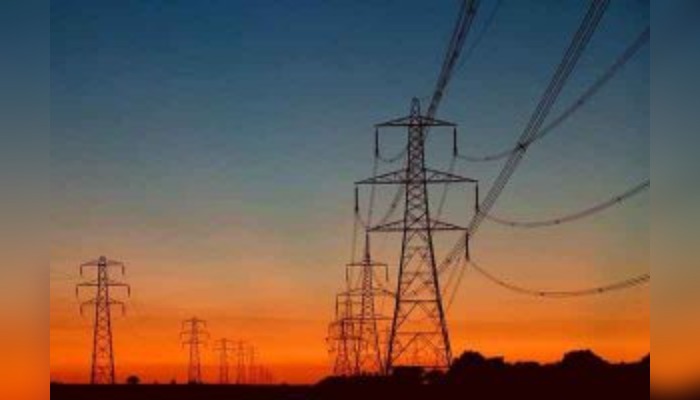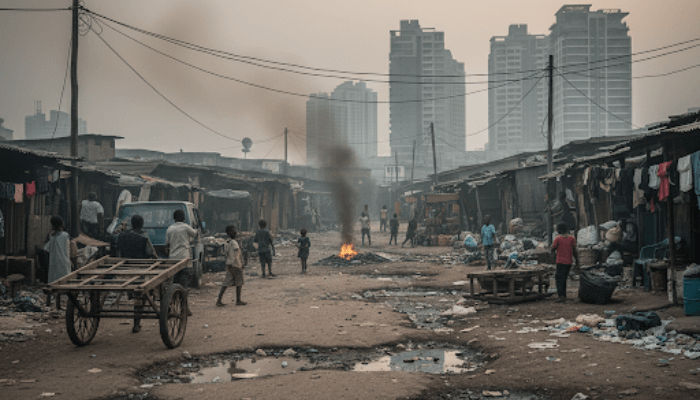Electricity is no longer a matter of convenience or luxury. In the 21st century, it is the bedrock upon which economies grow, societies develop, and nations protect themselves. For Nigeria, a country of more than 200 million people, the deepening electricity crisis is not just an economic bottleneck. It is rapidly becoming a threat to national security and stability.
Nigeria’s electricity failures are well documented. For decades, a cocktail of inadequate infrastructure, poor regulation, politicisation, and weak enforcement has left citizens and businesses in the dark, literally and figuratively. Yet what is less discussed is how this dysfunction extends beyond economic productivity and into the realms of security, governance, and national resilience.
“In a country confronting terrorism, banditry, piracy, and cyber threats, unreliable power hampers the operational capabilities of its security agencies.”
The consequences are staggering. Over 86 million Nigerians, nearly 40 percent of the population, have no access to electricity, making the country the global capital of energy poverty. Even those connected to the national grid endure epileptic supply, often receiving fewer than six hours of electricity per day. To cope, individuals and enterprises have turned to an estimated 15 million diesel generators, spending over $14 billion annually on self-generation, funds that could otherwise drive real development.
Beyond the economic waste, the implications for national security are grave. In a country confronting terrorism, banditry, piracy, and cyber threats, unreliable power hampers the operational capabilities of its security agencies. Military bases, police stations, intelligence outposts, and border posts cannot function effectively without dependable electricity. Surveillance systems fail, communication networks falter, and logistical operations are disrupted.
Moreover, the vacuum created by government incapacity to provide stable electricity has allowed non-state actors, militants, separatists, and insurgents, to embed themselves in neglected regions. These groups often gain legitimacy by supplying basic services, including electricity, to communities abandoned by the state. In these areas, power is more than infrastructure; it becomes a currency of authority and control.
The Nigerian Electricity Supply Industry (NESI) was meant to address this. Following the 2005 Electric Power Sector Reform Act and the unbundling of the defunct Power Holding Company of Nigeria (PHCN), the government pledged to liberalise the sector and attract private investment. However, poor regulatory enforcement, undercapitalised investors, and persistent political interference have ensured that reforms have yielded little real progress.
Read also: Running on Empty: Electricity sector reform and Nigeria’s national security imperative
For too long, electricity has been treated as a technocratic problem, one for engineers and economists alone. It must now be treated as a national security imperative. The passage of the Electricity Act in 2023. allowing states to generate, transmit, and distribute power independently, was a necessary step. But it is not enough.
Nigeria must adopt a security-centric energy strategy that prioritises decentralisation, resilience, and equity. This requires urgent action across six interlocking areas.
First, the Nigerian Electricity Regulatory Commission (NERC) must pivot from a command-and-control posture to an enabling one. It should support the development of state-level electricity markets, offering technical guidance and transitional support for local regulators. Federalism must be made to work in the power sector.
Second, states must build institutional capacity to manage their new responsibilities. Energy policy, regulation, and planning cannot be treated as afterthoughts. Dedicated state electricity agencies should be empowered to design and enforce policies suited to their regional needs and resources, be it solar in the North, hydro in the Middle Belt, or gas in the South.
Third, decentralised solutions such as embedded generation, mini-grids, and special energy corridors must be aggressively pursued. These options offer the quickest path to powering critical infrastructure, military installations, hospitals, agricultural clusters, schools, and digital data centres. Energy resilience in these sectors is synonymous with national resilience.
Fourth, physical and cyber protection of power infrastructure must be strengthened. Nigeria’s transmission lines, gas pipelines, and substations are routinely vandalised or sabotaged. A national infrastructure protection strategy, integrating satellite monitoring, drone surveillance, and a well-trained Civil Defence Corps, is no longer optional; it is overdue.
Fifth, the financial structure of NESI must be reset. The current model, dominated by loss-making distribution companies and an insolvent bulk trader, is unsustainable. Tariff reform, recapitalisation, and investor transparency are essential. Energy access must be commercially viable, but also socially responsible.
Finally, energy planning must be integrated into Nigeria’s broader national development and defence frameworks. Ministries of Defence, Finance, Digital Economy, and Agriculture must collaborate with the Ministry of Power, not operate in silos. Electricity is the foundation for digital inclusion, food security, education delivery, and even election credibility.
Nigeria’s power sector has long been a symbol of missed opportunity. But it can be reclaimed as a platform for strategic renewal, if the country’s leaders begin to view electricity not as an isolated utility but as the sinew that binds the national fabric.
A modern state cannot function in darkness. Nigeria’s future: its peace, prosperity, and sovereignty, depends on bringing light to every corner of its territory. The power crisis is not merely an infrastructure failure. It is a governance test. And Nigeria cannot afford to fail it.











